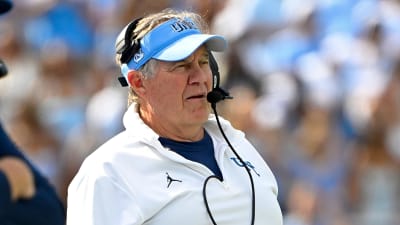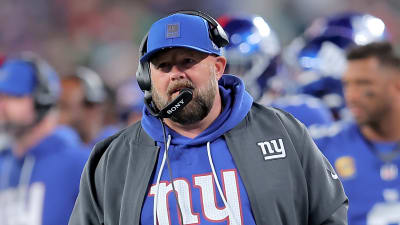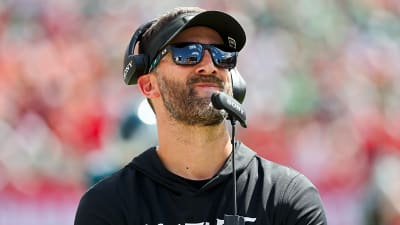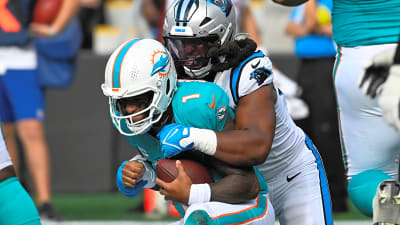
Penn State football has entered a defining moment. Less than 24 hours after a stunning homecoming loss to Northwestern, the university announced that James Franklin had been relieved of his duties as head coach. The move ends an 11-year tenure marked by stability, strong recruiting, and national relevance. More recently, it has been marked by mounting frustration against elite competition and a decline in on-field physicality.
Franklin’s buyout was among the largest in college football history at a reported $56 million, though the contract includes a duty-to-mitigate clause. That clause means any future coaching salary Franklin earns would offset Penn State’s financial responsibility. Even so, the sheer figure reflects both the university’s dissatisfaction and its confidence in its resources. The move underscores that leadership believes a change was essential to realign the program’s long-term trajectory.
Athletic director Patrick Kraft now leads a national search for Franklin’s replacement. It will shape the next decade of Nittany Lions football. The challenge ahead is clear. Find a coach who can blend the player-first culture Franklin built with the toughness, discipline, and accountability required to win championships.
James Franklin’s Tenure and Departure
Franklin’s time in State College included major milestones. A Big Ten championship, seven appearances in high-profile bowl games, and a College Football Playoff berth in 2024. He also helped produce 18 All-Americans and nearly 60 NFL draft picks, keeping Penn State visible on the national stage. The final years, however, revealed growing problems. Franklin’s teams struggled against elite competition, going 1-15 against top-five opponents, 4-21 versus top-10 teams, and 15-30 overall against ranked programs. The breaking point came with a crushing double-overtime defeat to Oregon in the annual White Out game, followed by consecutive losses to UCLA and Northwestern as heavy favorites — a streak unseen at Penn State in over 30 years.
The Lions’ offense regressed, quarterback progress slowed, and recruiting momentum faded in both the Mid-Atlantic footprint and national hotbeds. Blue-chip prospects from Pennsylvania, New Jersey, and the DMV increasingly looked to other programs that routinely send quarterbacks and skill players to the NFL.
Kraft described the decision as a step toward “restoring championship standards” within the program. His next hire will inherit a strong roster, an elite fan base, and the pressure of meeting those standards immediately.
Tier 1: The Home-Run Hires
Curt Cignetti – The Experienced Builder
Curt Cignetti is Pennsylvania-born and steeped in Big Ten culture. He was a receivers coach under Nick Saban and runs a balanced offense that emphasizes a physical ground game and quick passing. As a Pittsburgh native and longtime Pennsylvania coach, he would fit the culture and understand local recruiting. He has proven his program-building ability at every level, including Division II Indiana (PA), Elon, and James Madison.
Urban Meyer – The Proven Champion
Urban Meyer owns one of the greatest résumés in modern college football. He won national titles at Florida and Ohio State and retired with an 85 percent career win rate. His teams feature an aggressive, power-spread offense and elite defensive discipline. Meyer is an elite recruiter and motivator, but he has been out of coaching since 2018 and has shown no clear interest in returning. At 61, he could instantly reignite a program’s national credibility, though the fit with Penn State’s current culture would require delicate balance.
Nick Saban – The Standard of Greatness
Saban, now 73, has fully stepped away from coaching and serves as an analyst on ESPN’s College GameDay, where he contributes weekly commentary and insight. The seven-time national champion built dynasties at LSU and Alabama, earning nearly 300 career victories and defining the modern standard for consistency and discipline in college football.
While his name will always appear on dream lists during major coaching searches, Saban seems content analyzing games rather than leading them. His focus now lies in teaching the sport from a distance, not in rebuilding another powerhouse from the sidelines.
Brian Hartline – The Rising Star
Brian Hartline is Ohio State’s offensive coordinator and one of college football’s most dynamic recruiters. His scheme emphasizes vertical passing, spacing, and the development of elite wide receivers. Hartline’s youthful energy and proven ability to attract five-star talent could modernize Penn State’s offense.
A former NFL receiver himself, he connects naturally with players and brings a relatable, modern perspective to roster building. Among all realistic candidates, Hartline may be the most intriguing potential hire. He is a young coach whose blend of recruiting prowess, player development skill, and offensive innovation could reshape the program’s future. Yet he has no head-coaching experience, making him a high-upside but calculated gamble for Pat Kraft and Penn State.
Tier 2: The Realistic Rebuilders
Bill O’Brien – The Familiar Face
Bill O’Brien’s name will always resonate in Happy Valley. He took over the program in 2012 during one of the most challenging chapters in its history and guided the Nittany Lions to immediate respectability. His first team finished 8–4, and his leadership earned him multiple national coaching awards that season.
O’Brien favors a pro-style system built on physical offensive line play, multiple formations, and strong quarterback mechanics. After several years in the NFL — including stints as head coach of the Houston Texans and as an offensive coordinator in New England — he returned to the college game to lead Boston College. In January of 2024, he briefly agreed to become Ohio State’s offensive coordinator before shifting to the BC job, preferring to oversee an entire program rather than run a single unit.
His familiarity with Penn State’s culture and deep recruiting ties throughout the Northeast make him a logical consideration. While his current results in the ACC have been steady rather than spectacular, his organizational skills, discipline, and understanding of how to rebuild a locker room remain respected throughout college football.
Shannon Dawson – The Offensive Innovator
Shannon Dawson continues to orchestrate one of college football’s most productive attacks as the offensive coordinator and quarterbacks coach at Miami. Since taking the job in 2023, his up-tempo system has flourished. In 2024, the Hurricanes ranked among the national leaders in both scoring and total offense, averaging 43.9 points and more than 530 yards per game.
Dawson blends Air Raid passing concepts with balanced run integration, adapting his playbook to fit personnel rather than forcing a rigid scheme. His success with quarterback Cam Ward, who returned to college under Dawson’s direction, became one of the sport’s biggest stories. Ward went on to earn Heisman finalist recognition and was later selected as the No. 1 pick in the 2025 NFL Draft.
A native of Louisiana, Dawson has deep recruiting ties across Texas, Louisiana, and the broader Southeast. Though he has little direct experience in the Big Ten, his track record of creativity, adaptability, and player development makes him one of the more intriguing offensive-minded candidates on the board.
Will Stein – The Creative Play-Caller
Will Stein is Oregon’s offensive coordinator and a rising star among young play-callers. His system blends tempo, spacing, and balanced run-pass efficiency. Oregon’s offense under Stein consistently ranks among the nation’s best, and he has proven adept at adapting to personnel. Stein’s recruiting ties generally stretch from Texas to the West Coast. While his energy and innovation are ideal for Penn State’s offensive needs, he has never managed an entire program.
Matt Campbell – The Culture Architect
Matt Campbell has built Iowa State into a consistent contender despite limited resources. His approach centers on physical defense and smart, balanced offense. A native of Ohio, he has recruiting familiarity with Big Ten territories. Campbell’s culture emphasizes accountability and player development, traits that align with Penn State’s values. He lacks the flashy upside of some candidates but offers one of the highest floors in the search.
Matt Patricia – The NFL Technician
Matt Patricia is an NFL defensive strategist currently coordinating Ohio State’s defense. His background includes years under Bill Belichick, where he developed a reputation for complex fronts, disciplined zone structures, and meticulous preparation. His leadership style emphasizes toughness, accountability, and attention to detail, qualities that align with Penn State’s stated priorities for its next head coach.
However, Patricia’s lack of recruiting experience and limited time working with college athletes would make the transition challenging. His hire would also appear unlikely if Penn State retains Jim Knowles, whose national reputation as one of college football’s premier defensive coordinators already provides continuity and stability on that side of the ball. If Kraft’s intent is to modernize the offense and maintain Knowles’ defensive framework, Patricia’s candidacy could be viewed as redundant.
Manny Diaz – The Known Commodity
Manny Diaz knows Penn State intimately after coordinating its defense in 2022-23. Now the head coach at Duke (13-6 record through 2025), Diaz has built another aggressive, turnover-driven defense. His culture of energy and accountability resonates with players, and his recruiting ties in Florida and the Mid-Atlantic would immediately benefit Penn State. While he is a known commodity, questions remain about his ceiling after a mixed tenure at Miami.
Tier 4: The Personal Connection Tier
Matt Rhule – The Loyal Rebuilder
Matt Rhule is a Penn State alumnus and a close friend of Kraft. He has rebuilt multiple programs, including Temple, Baylor, and now Nebraska, where he has guided a quick turnaround. Rhule’s teams emphasize toughness, physicality, and player development. All attributes Penn State needs to restore. His recruiting background spans the East Coast and Midwest, and his NFL experience enhances his player-development appeal. Yet his record against ranked opponents also raises questions about whether he can elevate a team into the championship tier Penn State seeks.
What Penn State Must Prioritize
Kraft has made it clear that the university’s expectations remain championship-level. Penn State must hire a coach who restores physicality, accountability, and consistent recruiting dominance not only in Pennsylvania, New Jersey, New York, and the DMV, but also in national hotbeds such as Florida, Texas, and California. The next leader must modernize the offense, produce NFL-ready quarterbacks and receivers, and close the gap with Ohio State, Michigan, and other national powers.
This decision will define Kraft’s tenure. With top-tier resources, loyal fans, and a renovated Beaver Stadium on the horizon, Penn State has every tool to win big again. The right coach, one who merges Franklin’s family-first culture with a renewed sense of discipline and on-field intensity, can restore the Nittany Lions to true national contender status.
More must-reads:
- Penn State AD Pat Kraft delivers impassioned vision for next head coach
- CFB analyst suggests surprising coordinator to be Penn State's next coach
- The 'NFL 250-passing-yard game leaders' quiz
Breaking News
Trending News
Customize Your Newsletter
 +
+
Get the latest news and rumors, customized to your favorite sports and teams. Emailed daily. Always free!








